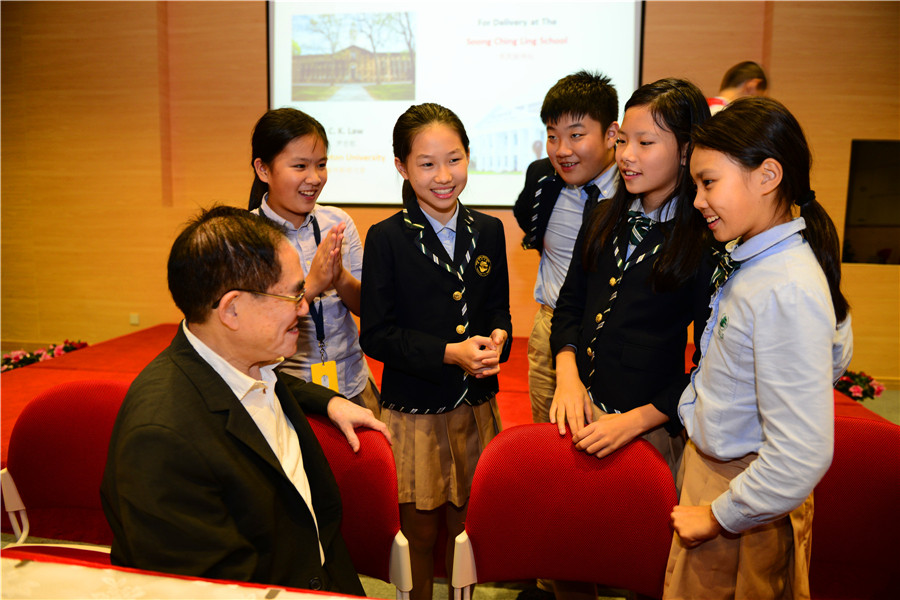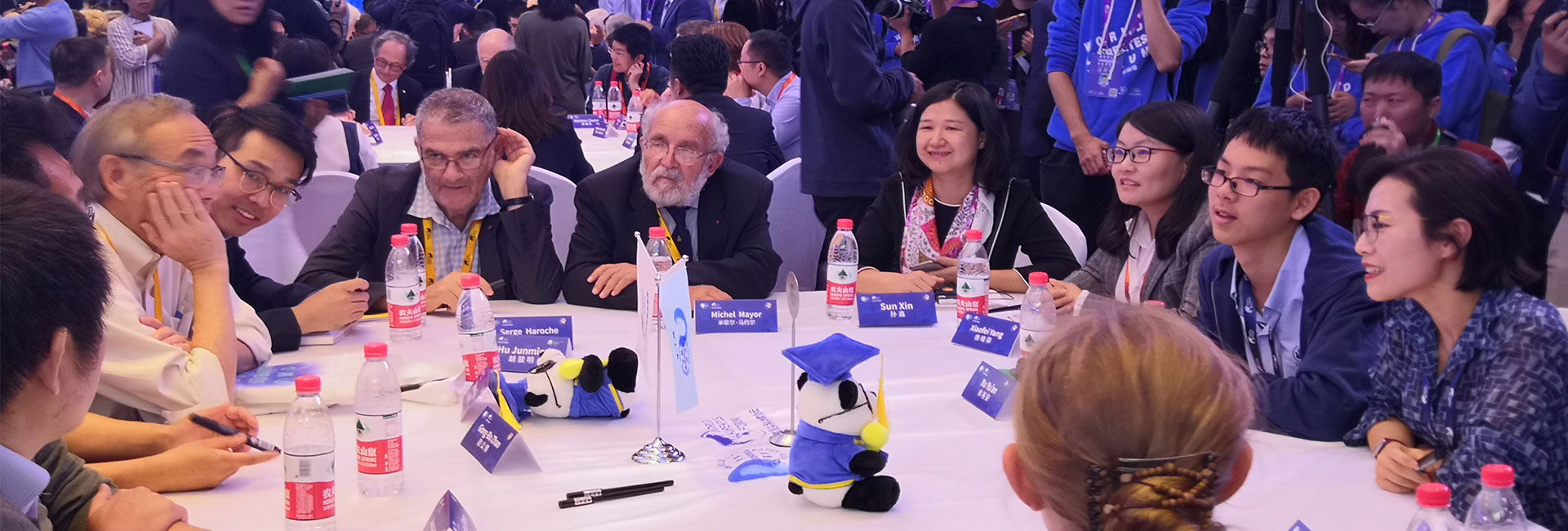
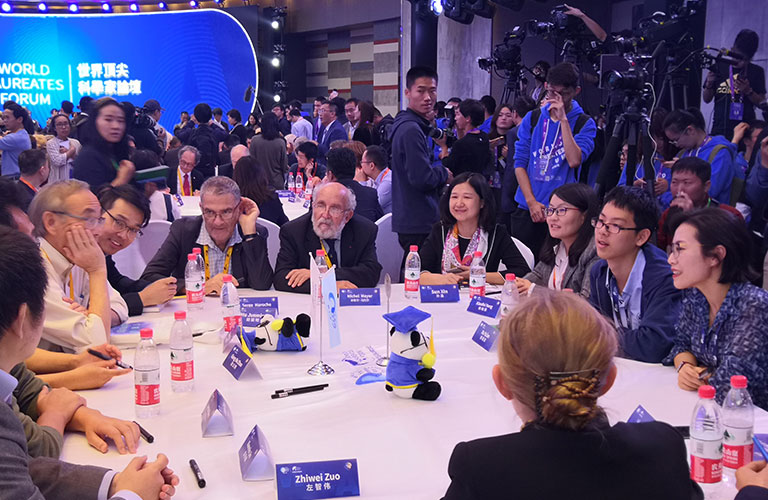

September 25th was a very exciting day for Soong Ching Ling students and faculties. The world-renowned scientist, Professor Chung K. Law from Princeton University delivered a presentation entitled “In Pursue of the Intellectual Excellence” at the Soong Ching Ling forum. Prof. Law is the Robert H. Goddard Professor of Mechanical and Aerospace Engineering at Princeton University and the director of the Center for Combustion Research at Tsinghua University. He is a member of American Academy of Arts and Sciences (AAAS), the US National Academy of Engineering (NAE), and a past president of the Combustion Institute.
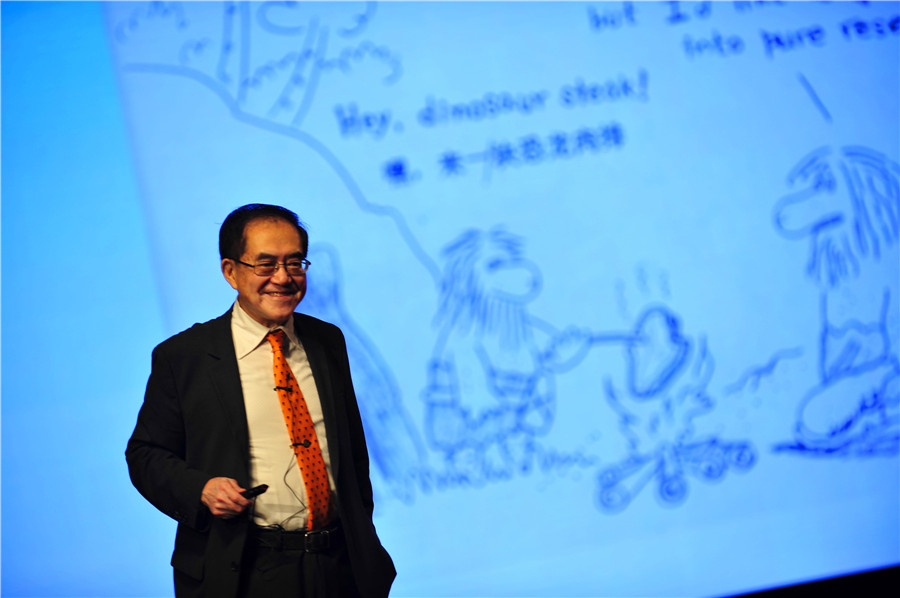
Prof. Law started his presentation from a question: “What is Combustion?”. “Combustion is a major technology and societal driver,” said Law, adding that it ushered the dawn of civilization, is companion in learning and love, provides warmth and joy, furnaces the industrial developments and expands the scope of human activities. He tuned down the deep scientific theories to simple illustrations such that the students could easily sense the “intellectual beauty and excitement of combustion”.
Prof. Law emphasized that combustion is a major scientific field which involves multidisciplinary studies. It impacts technologically and socially relevant areas such as energy and the environment, climate change, health, fire and explosion hazards, defense and space exploration, and materials synthesis etc. He also introduced the frontier research of combustion, from perspectives of expanding the scales and the flow systems. The presentation inspired students and completely subverted their understanding of combustion science.
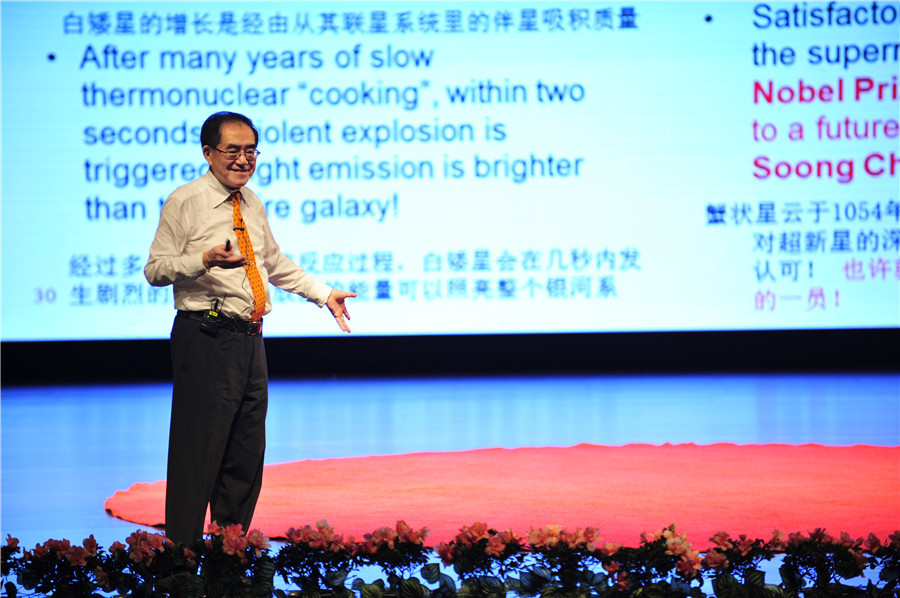
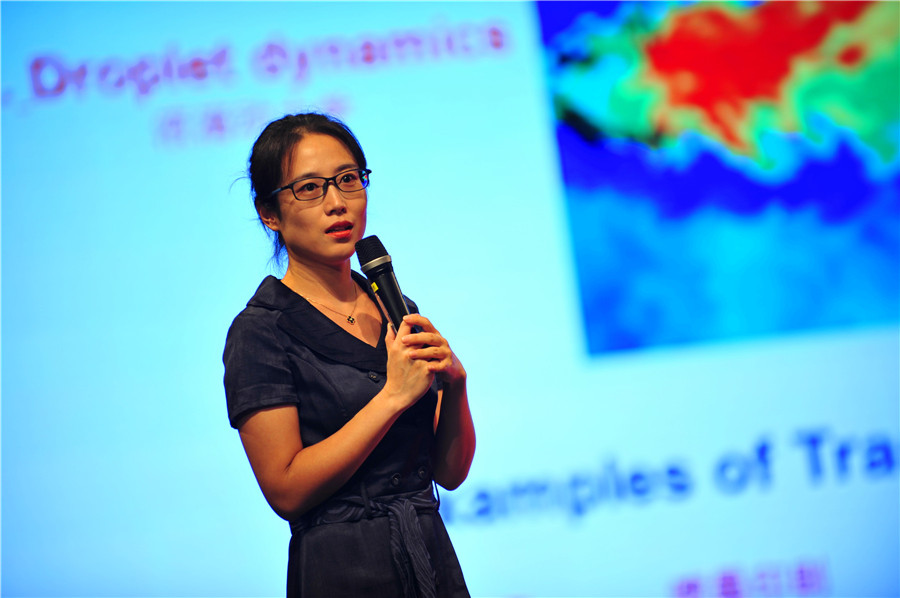
Dr. Wei Liu graduated from Princeton university, and she is currently the coordinator of college outreach program at SCLS.
The audience was greatly infected by Law’s passion, enthusiasm and joy that naturally flew when he talked about his research. He recalled that when he was in his 9th grade, he once attended a lecture delivered by Chen-Ning Yang. Though he could not understand a lot, he was greatly influenced by Prof. Yang’s passion in science, and motivated him to study physics as his major later. He encouraged the students to keep their curiosities and love in science, follow the heart and enjoy the fun of research.
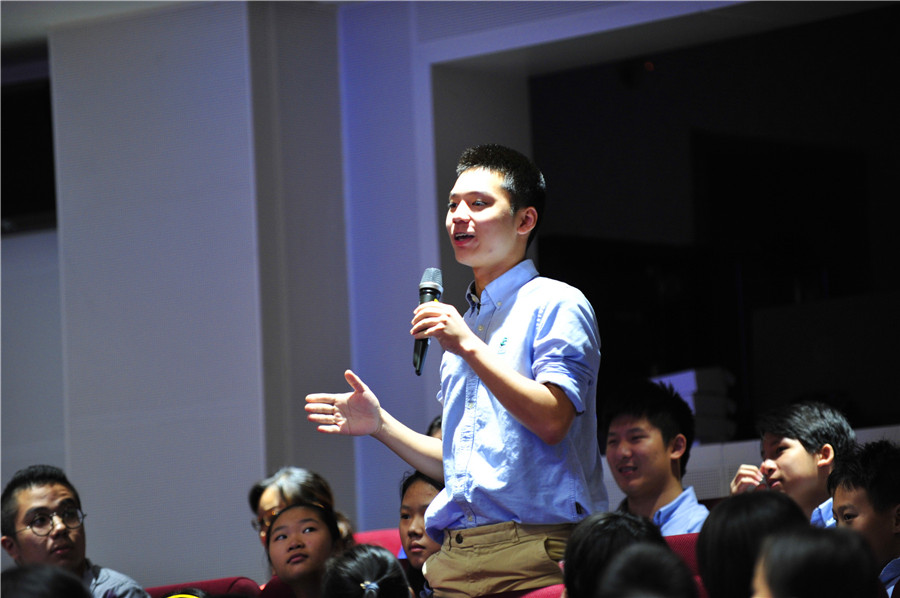
Prof. Law then discussed the nurturing of talents, including the identification and recruitment of talents by internationally leading universities such as Princeton, nurturing of talents as scholars, learners, explorers, doers and leaders, with emphasis on honor, compassion, and dedication to the betterment of humanity.
After the short break, Prof. Law came to the Auditorium in SCLS Art Building. When a world-renowned scientist met with our students who were curious about combustion science and his life experience, what kind of sparks would it make?
How much of the world energy consumption comes from combustion? Whether your research will bring a fundamental change in the burning of fossil fuels?
Nowadays, 80% of the world's energy is from the burning of fossil fuels, while that from the solar energy is less than 1%, hydropower, 2-3%. Improving the combustion efficiency by 1% means a lot to the world energy consumption. Our researchers should think big: what can we do for all mankind? I also encourage my students to think that way.
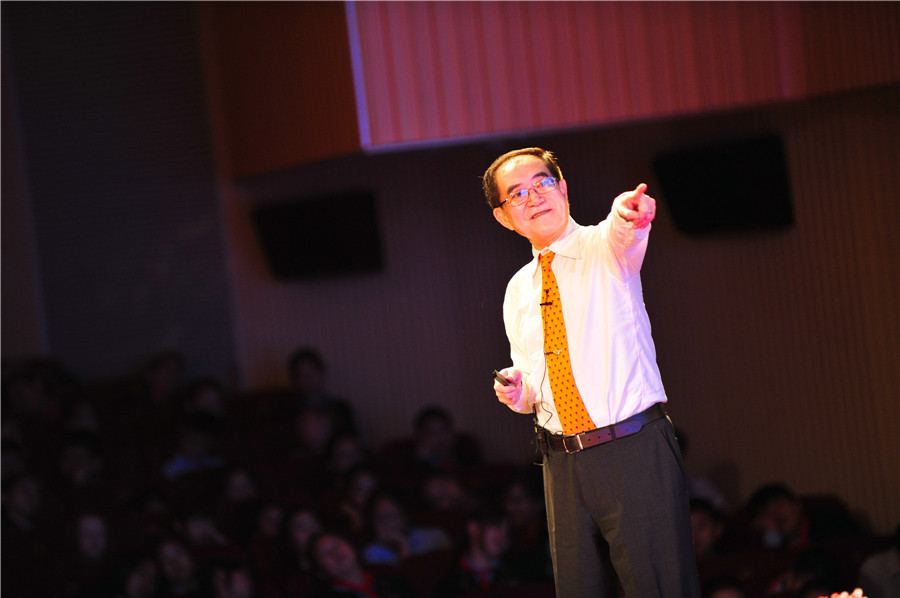
How do you see the future of combustion engine?
There are more and more electric cars and engines can be replaced by batteries to a certain extent, but how is the electricity generated? It is still combustion.
When did you decide you want to work on combustion? Did you plan to go to Princeton University when you were a student?
Everything happened by chance. Don’t think too much or plan too well before you do it. You spend your time, you work hard and you will enjoy the fun. I might also do something else well if not combustion. I happened to go to Princeton University because they had openings at the right time. You do well enough, opportunities will open up for you, you will be recognized.
What else do you do other than your job?
I was interested in collecting stamps and readings etc. But I am sorry to tell you that I do not have many hobbies, and I want to emphasize that please don’t learn from me. I was just so obsessed in my work, and I dug deep into it. I feel so happy while I work that I just can not help. But I always tell my students that I am not a good example. Don’t always work. At least take a day off every week to enjoy your life, but not two days off (laugh).
